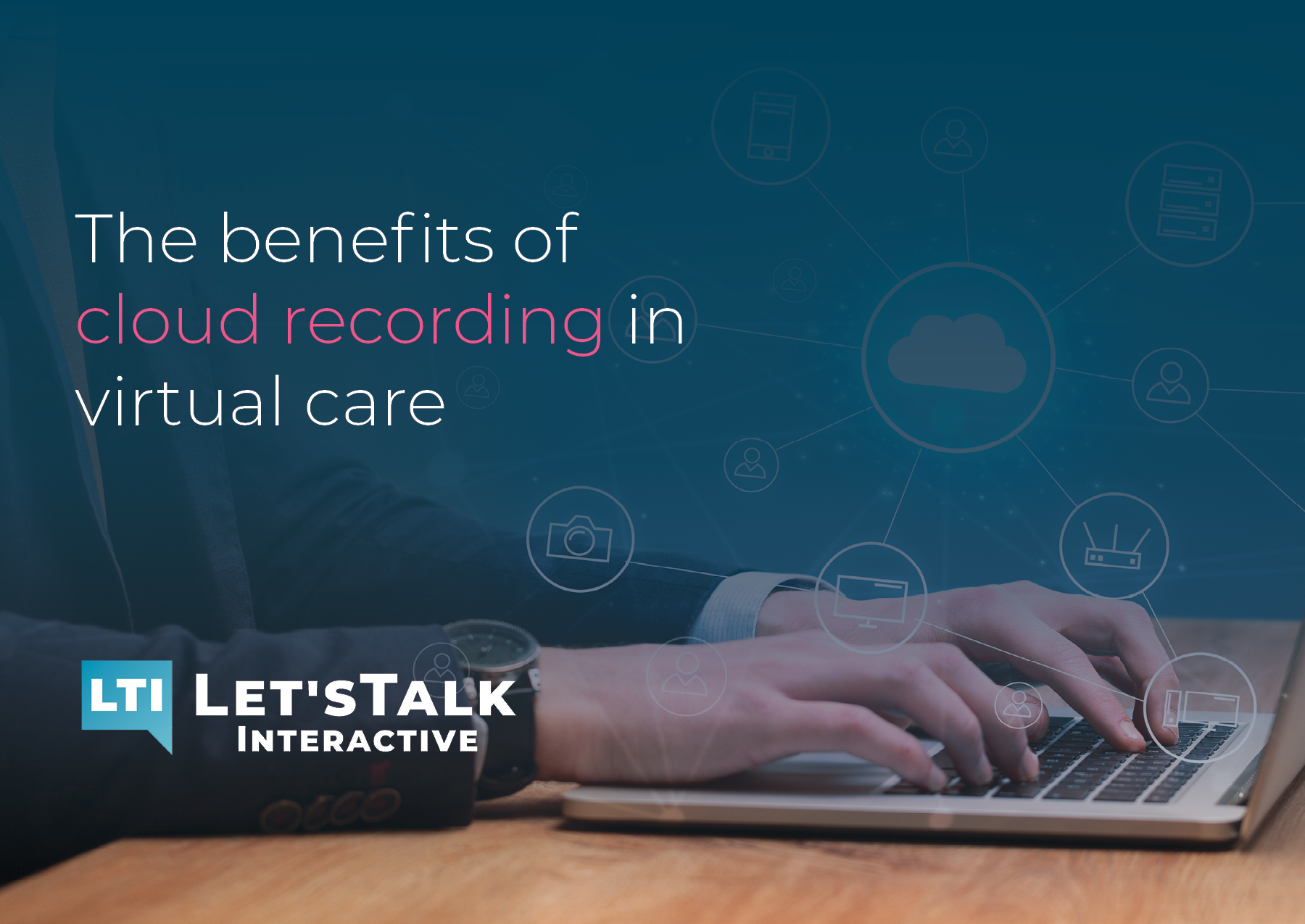Why Cloud Recording of Telehealth Sessions is Vital to Patient Care and Provider Efficiency
Posted: May 26, 2023

In recent years, the world has witnessed a transformative shift in healthcare delivery with the rise of telehealth. The ability to conduct virtual consultations and connect patients with healthcare providers remotely has proven invaluable. While telehealth presents many advantages, one aspect that often goes overlooked is the recording of telehealth sessions. Here are just a few reasons the ability to record telehealth sessions is a significant benefit to patients and providers.
Enhanced Patient Care and Engagement
Recording telehealth sessions serves as a valuable tool to improve patient care and engagement. By documenting consultations, providers can review the recorded sessions to gain a comprehensive understanding of the patient's medical history and treatment progress. This aids in making more accurate diagnoses, developing tailored treatment plans, and monitoring patient outcomes over time.
Moreover, the ability for patients to revisit recorded sessions can be empowering. Patients can revisit the discussion, instructions, and recommendations provided by the healthcare provider, reinforcing their understanding of the treatment plan and medication instructions. This fosters greater patient engagement, adherence to treatment protocols, and overall satisfaction with the telehealth experience.
Legal Compliance and Risk Management
Recording telehealth sessions can play a crucial role in legal compliance and risk management for healthcare providers. Just as with traditional in-person consultations, maintaining accurate and comprehensive medical records is essential. Recording telehealth sessions ensures that a complete and detailed account of the patient's visit is available for future reference, reducing the risk of legal disputes and liability issues.
In case of any misunderstanding or disagreement regarding treatment decisions or instructions, recorded sessions provide an objective record of the conversation and aid in resolving any conflicts. Additionally, recorded sessions can be invaluable when it comes to verifying the informed consent process, ensuring compliance with privacy and confidentiality regulations, and providing evidence in case of malpractice claims.
Quality Assurance and Continuing Education
Recording telehealth sessions offers an excellent opportunity for quality assurance and continuing education within healthcare organizations. By reviewing recorded sessions, providers can engage in self-assessment, analyze their communication skills, and identify areas for improvement. This self-reflection promotes professional growth, enhancing the overall quality of care delivered to patients.
Moreover, recorded telehealth sessions can be used for peer review, supervision, and training purposes. This enables healthcare organizations to maintain consistency in service delivery, align with best practices, and ensure that providers adhere to established clinical guidelines. Such utilization of recorded sessions fosters a culture of continuous learning and encourages collaboration among healthcare professionals.
Research and Clinical Studies
The recording of telehealth sessions has immense potential in advancing medical research and clinical studies. With appropriate patient consent and privacy safeguards in place, anonymized recorded sessions can be used for research purposes, allowing researchers to gain insights into patient behavior, treatment effectiveness, and healthcare outcomes.
Researchers can analyze the recorded sessions to identify patterns, evaluate the impact of interventions, and contribute to evidence-based practices. The vast and diverse datasets generated from recorded telehealth sessions can lead to breakthroughs in various medical fields, ultimately benefiting patients on a broader scale. This capability is often requested among our University partners for this very reason.
In the era of telehealth, where virtual consultations have become an integral part of healthcare delivery, the importance of recording telehealth sessions cannot be emphasized enough. From enhancing patient care and engagement to ensuring legal compliance and supporting research efforts, the benefits of recording sessions are vast and multifaceted. As telehealth continues to evolve, healthcare providers and organizations should embrace the recording of telehealth sessions as a valuable tool for improved patient outcomes, provider efficiency, and the advancement of medical knowledge.